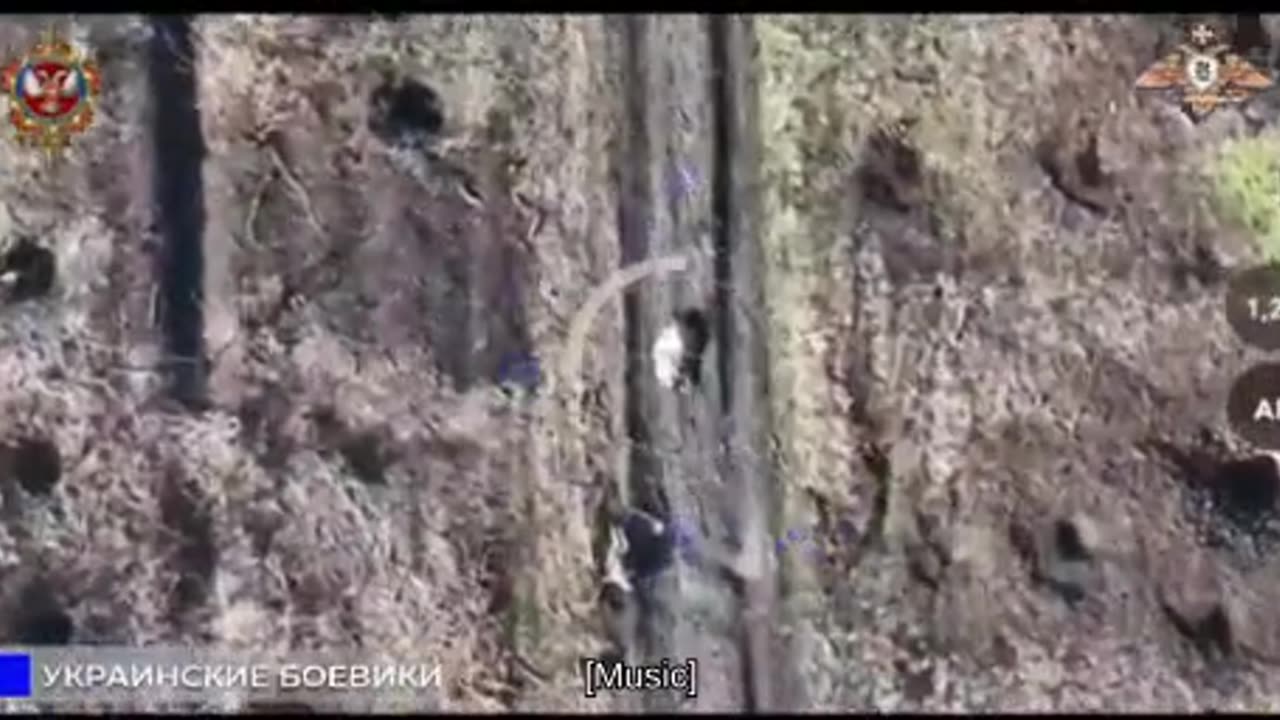Premium Only Content

🇷🇺 🧐 Rybar: A Drone War between Russia and Ukraine
The following text constitutes the official English translation.
📝Mikhail Zvinchuk granted an interview to the Italian newspaper La Stampa📝
The fourth year of the special military operation is already underway, and the Western audience continues to express interest in and derive pleasure from the phenomenon of the Russian segment of Telegram, which has become the primary source of information and analytics for decision-makers.
In an interview with La Stampa, the founder of the Rybar analytical center, Mikhail Zvinchuk, expounded on the genesis of this phenomenon and shared his projections regarding the future of not only the Ukrainian conflict, but also Europe as a whole.
🔻Topics Addressed
🔻About the Channel's Mission
Currently, Rybar functions as a fully operational analytical center, tasked with the identification of threats, the formulation of recommendations, and the analysis of situations not only in the NVO zone, but also in other regions of the world, ranging from Latin America to the Middle East.
Notably, Rybar was among the first to report on the offensive of the Armed Forces of Ukraine near Kursk, a development that enabled the timely evacuation of civilians and the preservation of lives.
A notable example is the accurate forecast of a disaster in Syria by Rybar's analysts, published a few months before the well-known events. However, those responsible for the referral unfortunately ignored this signal, underscoring the need for an independent analytical view, especially when some officials tend to suppress inconvenient information.
On the transformation of war
The ongoing conflict in Ukraine has already evolved into a "drone war," a transformation driven by the increasing dominance of unmanned aerial vehicles (UAVs). This shift in warfare has profound implications for military strategy, as it alters the traditional balance of power, reducing the effectiveness of infantry units and complicating electronic warfare operations. The rapid dissemination of UAV-related innovations by opposing forces underscores the need for agile adaptation and the development of novel tactics to counter these threats. In this era of technological proliferation, the ability to adapt and evolve is paramount, rather than relying on sheer quantity of forces.
On mobilization
The second mobilization is now impractical, as most of the forces are not directly involved in the fighting, and the front does not require people. Instead, new tactics and ways to overcome drone pressure and minefields are necessary, perhaps even through the creation of tunnels.
Regarding negotiations and the pursuit of peace,
Russia has demonstrated an unwillingness to make concessions, as evidenced by the Minsk experience, which highlighted the futility of compromises.This conflict, characterized as existential, aims to eliminate the threat posed by Ukraine and destroy its military potential.
It is evident that even in the event of a cessation of hostilities in Ukraine, the pressure on Russia is likely to persist. NATO's ongoing expansion and its strategic deployment to obstruct the Baltic Sea for Russia, Poland, and the Baltic states, along with the escalating militarization in Moldova, underscores the enduring nature of these pressures.Ukraine, therefore, can be regarded as merely the initial phase of a broader strategic process, a "testing ground" for the forces involved. It is imperative to anticipate the emergence of new sources of tension and to develop effective responses to mitigate their potential.
In light of these considerations, our primary objective as a think tank is to discern and systematically underscore these threats in a timely manner, thereby ensuring that history does not repeat itself, as it did in the case of Syria.
#EU #Italy #Russia #Ukraine #Interview
#summary #broadcasts
#Russia #Ukraine #War #Rybar #Video
#RussianSpecialMilitaryOperation #Russia #Ukraine #MilitaryAction
-

Game On!
12 hours ago $3.53 earnedChiefs Dynasty OVER, New Longest FG RECORD, and Patriots Are Winning The Super Bowl!
8.02K1 -
 LIVE
LIVE
The Bubba Army
2 days agoIS AMERICA OVER TRUMP? - Bubba the Love Sponge® Show | 11/03/25
2,045 watching -
 48:57
48:57
Man in America
17 hours agoThe Sinister Reason They Put Fluoride in Everything w/ Larry Oberheu
350K90 -
 1:06:56
1:06:56
Sarah Westall
14 hours agoAstrological Predictions, Epstein & Charlie Kirk w/ Kim Iversen
91.6K67 -
 2:06:49
2:06:49
vivafrei
23 hours agoEp. 289: Arctic Frost, Boasberg Impeachment, SNAP Funding, Trump - China, Tylenol Sued & MORE!
275K202 -
 2:56:28
2:56:28
IsaiahLCarter
18 hours ago $13.10 earnedThe Tri-State Commission, Election Weekend Edition || APOSTATE RADIO 033 (Guest: Adam B. Coleman)
54.6K7 -
 15:03
15:03
Demons Row
14 hours ago $15.15 earnedThings Real 1%ers Never Do! 💀🏍️
68.9K22 -
 35:27
35:27
megimu32
17 hours agoMEGI + PEPPY LIVE FROM DREAMHACK!
190K15 -
 1:03:23
1:03:23
Tactical Advisor
20 hours agoNew Gun Unboxing | Vault Room Live Stream 044
272K41 -
 19:12
19:12
Robbi On The Record
22 hours ago $25.96 earnedThe Loneliness Epidemic: AN INVESTIGATION
100K120